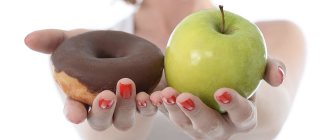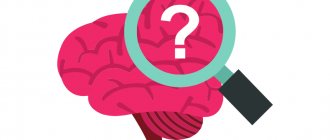Depending on the form of manifestation of the habit, there are:
1. Physical (walk quickly)
2. Emotional (in the morning, wishing good morning to work colleagues)
3. Behavioral (clean up the house in a certain sequence).
Depending on usefulness:
1. Useful
2. Harmful
The difference between useful and harmful is that we control the former, and the latter, on the contrary, control us. We form useful ones on our own, but harmful ones seem to find us themselves.
What is a habit and where does it come from?
Habits are not called second nature for nothing. In psychology, this definition means a characteristic form of behavior that does not require volitional and mental effort from a person.
In another way, we can say that this is a tendency towards something that has become permanent for a person. In social science, a habit is an unconscious automatic pattern of behavior that manifests itself under repeated conditions.
Humans are thought to engage in two forms of behavior:
- goal-oriented - it requires effort and control from us, forces us to think and make informed decisions, but it is easy to change if the goal changes;
- habits - such actions do not require mental and psychological costs, but it is very difficult to change an established way of life, even if a person has such a goal.
If the same action or reaction occurs under the same conditions, then a habit is formed. At the same time, a person experiences joy, peace and satisfaction. If without this action the consciousness feels uncomfortable, then the habit has already taken root. The most annoying thing is that good habits, as a rule, are more difficult to learn than bad ones.
We learn many inclinations in childhood, looking at our relatives. The fragile child's psyche cannot yet consciously filter what is worth remembering and what is better to ignore. Therefore, it is so important that the environment sets the right example for the child.
It is impossible not to touch upon the physiological side of this phenomenon. It turns out that a habit is formed neural connections in brain structures. That is, often a person simply has no choice: he becomes hostage to a certain algorithm. And therein lies the main danger. After all, when you try to violate the chosen model, the brain begins to protest in every possible way, provoking anxiety and discomfort.
Right social circle
It is necessary not only to get rid of negative attachments, but also to create a positive environment around yourself. To do this, you need to carefully choose your environment and friends. It has been proven that society has a strong influence on a person . Most habits appear this way: a friend suggested smoking, but the person couldn’t refuse. It's even worse if they offered drugs. Communication with such people will not lead to anything good. An addiction will appear that will be very difficult to get rid of.
The benefits and harms of habits
The benefits of habits are obvious. If we constantly had to deal with something new, our consciousness would not be able to withstand such a load. Therefore, it is definitely useful and hardly requires revision to the habit of turning off the light when leaving the room, washing your hands after visiting the toilet, or doing ten squats every day. But you need to take a closer look at some of your habits.
We will talk about seemingly completely harmless customs that do not harm anyone: going to work the same way, visiting the same stores, watching TV series on weekends.
By getting used to it, we become predictable and do not develop. A fear of change appears, and a person refuses it, even to the detriment of his interests. He may remain in an unpromising job with a tyrant boss until the end simply because he is used to it and is afraid to change something. And the helpful brain will come up with a thousand reasons to leave everything as it is.
People are manipulated using their habits. This tactic is especially often used in sales. For example, when a store opens, customers are lured with low prices, a profitable bonus system or gifts. After people get used to visiting a retail outlet, prices gradually increase, and bonuses become not so profitable. Of course, some consumers will see through the trick and leave to look for other places, but some will remain as regular customers.
You can't become a slave to your habits! You should learn to use them for your benefit and make those things automatic that are not worth the extra effort. And you should get rid of useless restrictions that hinder development, replacing them with good ones.
Take pleasure from simple things
Smoking and alcoholism usually arise from the desire to have fun. What to replace them with? Learn to enjoy simple things .
Every day we have to deal with different events, we need to focus our attention only on the positive ones. The right attitude will help you see these moments and rejoice:
- success at school or at work;
- handmade masterpieces;
- household chores and proper organization;
- favorite ringtone on your phone;
- pet care;
- a good film;
- communicating with friends.
When there are many pleasant events in a person’s life, the risk of becoming addicted to alcohol or smoking is noticeably reduced. The mood becomes positive and stable without unhealthy habits.
Types of habits
Habits fall into two broad categories:
- Behavioral – habits that have become common for an individual: making the bed in the morning, brushing teeth, ventilating the room.
- Cognitive - how we perceive events, how emotionally we react to them and how we think about something, judge or understand other people. Someone begins to show aggression, someone gets lost and crawls into their shell, others tend to be offended or blame themselves.
More than 100 cool lessons, tests and exercises for brain development
Start developing
According to another classification, habits are usually divided into the following groups:
- professional - the philologist will automatically correct the interlocutor’s mistakes, and the doctor will wash his hands according to a proven pattern;
- household - do exercises in the morning, wash dishes immediately after eating;
- social – interrupt the interlocutor, say hello when meeting, smile;
- individual - biting nails, going for walks along the same route.
The most common division of addictions into harmful and useful.
- Harmful
In short, bad habits are those automatic everyday actions that prevent a person from being fulfilled, ruin his health and have a bad effect on relationships with others. They are considered a sign of weakness, since the individual is not able to limit the manifestation of his addictions, even for his own good.
If such behavior becomes widespread, it poses a danger to society as a whole. The most famous: alcohol consumption, smoking, gambling addiction, shopaholism, overeating, Internet addiction, incontinence, excessive shyness, perfectionism, etc.
- Useful
Those essential skills that help a person be healthy and successful, maintain balance in relationships with others and make friends. Some of them are: wash your face with cold water, plan your day, read regularly, save 10% of your income, hug your loved ones, keep a diary, etc.
Habit Loop
To know how to influence habits, you need to understand how they work and what triggers the behavior. This pattern is called the habit loop.
The first element in the chain is the trigger. This is a circumstance that causes an automatic reaction on our part. It can be both internal and external. For example, the first include the feeling of hunger or one’s own experiences. External ones include the environment (a colleague invited me to smoke) and aspects of the external environment (I’m cold - I want tea).
The trigger leads to the formation of a dominant, i.e. a need that is impossible or difficult to ignore. To satisfy this need, it is necessary to perform a mental, physical or emotional action. The brain chooses the method of implementation based on the experience and knowledge already at its disposal.
At the end we receive a reward in the form of a positive emotional reaction. Reinforcement with a positive reaction gives the brain a signal that it would be nice to remember this scheme and practice it further.
If you look at a habit from the point of view of a loop, it turns out that until you begin to consciously fight the learned behavior program, you should not expect changes. The brain will play a well-known record as soon as you are exposed to the appropriate trigger.
It's easier to prevent than to cure
As you know, it is better to eliminate any bad habit at the root than to fight it in an already advanced form, which means that the prevention of bad habits plays a big role in this matter.
Therefore, it is effective to show teenagers thematic films, show book materials, hold conversations, and discuss pressing problems. It is important to conduct lectures with doctors, psychologists and other specialists
And if they talk enough about smoking, alcohol and drugs in modern families, then much less attention is paid to other problems
It is important to emphasize willpower, cleanliness and personality formation
How to develop a new habit
Let me say right away that instilling a habit is easier than trying to get rid of it, especially a bad one. Therefore, here we will look at instructions on how to develop new ones. We’ll talk about how to get rid of bad habits in a separate article.
You've probably heard the popular belief that it takes 21 days to form a habit. Actually this is not true. How many days it takes to develop depends on the level of perception. It is different for all of us, and it will take different times to consolidate. In addition, habits may differ. You can learn to drink a glass of water in the morning much faster than instilling the desire to go for a morning run. Therefore, it may take from 3 days to six months, or even more, to develop behavioral stereotypes.
Habit Formation
Now let's figure out how to form a habit. To do this, you need to go through several stages. It is better to clearly understand these stages. Then you will be able to understand how to act and how to help yourself if the operation is close to failure.
Stage 1. Resistance to change
Here an individual lives and does not suspect that he needs to change. And no matter what others say, he does not listen or even analyze external information. Because he does not have such a task and need.
But gradually dissatisfaction accumulates. A person comes to understand that it would be nice to change the usual routine.
Stage 2. Reflection
The duration of this stage is from 1 to 14 days. Here our hero begins to analyze and think about whether it is worth trying at all. What good things would come into life along with this behavior? Will it be too hard to develop it? Weighs the pros and cons for himself and for others.
And if there are more advantages, then the work begins. But if the task seems too risky or scary, then any arguments are powerless. And sooner or later the idea will fail.
Stage 3. Preparation
This stage takes from 1 to 3 weeks. To achieve maximum effect, already at this stage you need to mentally imagine what kind of life awaits you after the innovation is consolidated. Feel the emotions. The more expressive they are, the more uplifting and motivated you will get. They will help you find ways to do what you want to do.
The effect can be enhanced if you consciously reinforce the need for change with facts. Collect information that will show the usefulness of the habit for you, read other people's success stories.
On our blog we have a selection of biography books of successful people who were able to achieve unprecedented heights in business and became famous throughout the world. I recommend to read. It will be useful and interesting!
It would also be nice to enlist the support of loved ones. You clearly voice that you have decided to change something. If there is no support from your environment, it will be more difficult to achieve success, but do not despair. Look for like-minded people among friends and acquaintances, join interest groups, sign up for special courses.
Stage 4. Action
There is nowhere to retreat. For the first month, you are required to adhere to the new order strictly. It is desirable at the same time and under the same conditions so that the loop (trigger - action - reward) begins to form. This will help the structure to take hold much faster.
Moreover, it is better to choose a simple trigger that does not require extra effort. For example, always place a book on your bedside table to form a habit of reading before bed.
The formulation of the habit itself is also important. You should be specific about what you will do and when. Exercising every day is not the best way to set a goal. A specific formulation will work much more effectively: 5 squats, 5 push-ups and 20 minutes of running in the park every morning immediately after waking up.
To develop a habit, you need to love it. Try not to forget the reason why you are forming it. Find pleasure in every moment.
Stage 5: Sustaining Change
And now it seems that the goal has been achieved and you can exhale. But here comes the final stage – maintaining the changes. It lasts 60–90 days. During this period, your position is quite precarious. Any stress or change in circumstances can cause you to slip back. Therefore, try not to find yourself in new conditions so that there is no chance to abandon behavior that has not yet been established.
Tips for successful mastering
How to develop and consolidate a habit? Several recommendations can help in this difficult matter:
- Be prepared for difficulties and face them bravely. Don't think that everything will be easy and simple. There will definitely be obstacles along the way, so you should think in advance how you will get around them.
- Connect reminders so you don’t forget about the changes you are making, ask your environment to remind you, share your results with like-minded people. It is also necessary to track progress in a diary or enter it into some application. Take a paper calendar and mark each day on it that you fulfilled your promise. The longer the continuous chain, the closer you are to the goal.
- One of the effective ways to persuade yourself not to deviate from your plans is a reward system. Promise yourself something nice if you follow the new rule for three days. The period can then be extended to seven or more days.
- Accept your imperfections. Don't beat yourself up too much for failures and deviations from the plan. Otherwise, you risk taking a significant blow to your self-esteem and giving up on everything altogether. Just get back to the plan without unnecessary drama.
- Introduce changes into your life little by little so that they do not cause rejection. At first, select a feasible volume of actions and gradually increase it. Example: you want to reach 50 push-ups a day. And even if you are physically able to complete them, it is difficult to force yourself to immediately do such a volume of work. Start with 5 push-ups, after a couple of days add one more, and then a few more. Continue until you reach your desired volume.
- You can try to trick the brain by incorporating new actions into already established rituals. For example, immediately after waking up, drink a glass of water or take a contrast shower while washing.
- You can set a deadline for refusal. This will help if you are overwhelmed by anxiety about upcoming changes and it seems that all this is too difficult and unattainable. Try reducing your anxiety by saying, “I've been doing this for two weeks. And then we’ll see.” After half a month, the period can be extended. The main thing is not to lose motivation during this time.
Are vitamins really useful?
And now the question is: are supplements really necessary - minerals or vitamins in the form of dietary supplements? Are you at risk of deficiencies in vital nutrients unless you have a serious illness and are not a pirate on a schooner who lives exclusively on biscuits? Most likely no.
Of course, there are vitamin deficiencies - conditions with very specific symptoms, but in general, loud statements about the exceptional benefits of any micronutrient should be treated with skepticism. Any publications about proper nutrition on popular resources are forced to live by the laws of journalism: the information must be relevant and new.
If everything is clear with relevance (a person is what he eats), then ensuring novelty is not so easy. You can’t talk over and over again about how vegetables are good and fast food is bad. Therefore, the media constantly publishes news that refute what seemed unshakable
“Butter is good for you!” In a couple of years, however, it will again fall out of favor, because new information is needed, especially in conditions of its abundance and competition for the reader’s attention. In fact, the same laws apply here as when publishing news in the media, endless reading of which only increases anxiety and the feeling of loss of control over one’s life
Focusing on the product is fundamentally wrong, and the consequences of its use are almost impossible to study. Pharmaceutical companies, for example, spend huge amounts of money on conducting clinical trials, where one group receives drug X and the other receives a placebo. If there are no other differences between the groups, it becomes clear whether the study drug is working. But in the case of nutrients, it is almost impossible to get one group of people to eat flax seeds for 10 years and another not to eat, and to force them to otherwise adhere to the same diet.
Nutritionology studies not so much individual products, but how they are consumed. For example, the Mediterranean diet has been shown to help reduce the risk of cardiovascular disease. To lose weight and strengthen your cardiovascular system, it is more beneficial to reduce your carbohydrate intake than to limit fat. And of course, weight gain is determined only by the difference between calories consumed and calories burned. As you can see, there are no miracles or novelty.











